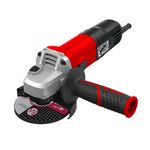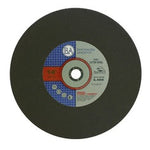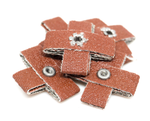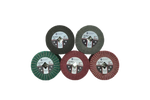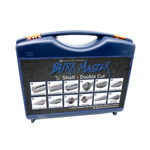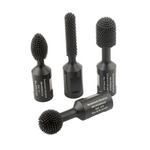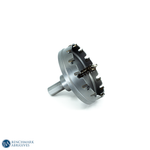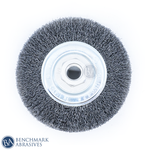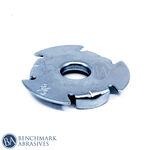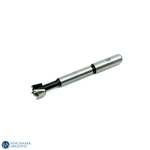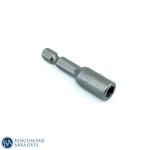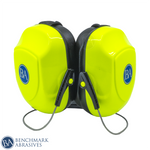
Why Properly Cleaning Your Hands After Metalworking Is Essential

The proverb "Cleanliness is a virtue" may have once been employed by your mother to tidy your room. But in the manufacturing industry, where a crowded and disorganized workstation can negatively affect so many crucial tasks and procedures, plant managers should pay attention to this saying. A routine housekeeping program can help tighten controls and processes, such as tracking parts and materials, removing and discarding scrap metal and used fluids, and properly treating and reusing wastewater, in addition to the obvious safety benefits.
However, there are still more benefits to be realized. A strong focus on cleaning can boost employee satisfaction, sales, and operational effectiveness. When put into practice, superior cleaning procedures go beyond the physical as well as the mental aspects of your company. There are clear financial benefits in terms of risk avoidance and deferred repair.
EVERYTHING HAS A PLACE
Whether it's cooking, writing, metal stamping, or injection molding, how well you prepare is a major factor in success. An organized system for swiftly and easily storing, identifying, and transporting raw materials on the shop floor, where space is at a premium, gives your staff the organization and structure they need to concentrate on the main task.
Ergonomics pre-arrangement of all trade tools reduces dangers, worker fatigue, and needless time spent looking for supplies or tools. The OSHA Product Handling, Storage, Use and Disposal Standard (1926.250), which states that storage areas should not gather products that provide hazards for tripping, fire, explosion, or pests, clearly says this is more than an organizational practice.
Manual removal is not economical in metalworking, where significant material waste can quickly build up and obstruct workspace areas. Conveyors that automate the removal of accumulated chips and coolant keep away from the place of production. Briquetters that compact loose turnings and swarf into nearly solid dry pucks for recycling are better solutions for managing spent material buildup. The following are other efficient methods for disposing of scrap and used fluid waste:
- Chips-drying and fluid-recovery wringers and centrifuges are available.
- Crushers and shredders with vertical axes transform hazardous metal turnings and large wads into chip sizes suitable for shovels.
- Tramp metal separators can protect your scrap metal equipment from harm and minimize downtime and expensive repairs. This is done by removing bar ends, damaged tools, and other solids from your chip flow.
SALES ARE AFFECTED BY FIRST IMPRESSIONS
When major business transactions involve walkthroughs or close inspections of your facilities, an unkempt or dirty building might seriously jeopardize those transactions. Like asking yourself if you would be happy eating at a restaurant where chefs don't wash their hands: What other elements are they overlooking if they aren't paying attention to something so basic for their patrons? Where else could the plant manager compromise? Could my business suffer from this disarray and throughput compromise?
This trap can be easily avoided by implementing an automatic housekeeping program with a set timetable that prioritizes keeping the workplace clean and organized. Give customers no cause to wonder if the service or product they receive from you is poor quality or flawed. Take all the required precautions to create a clean, effective, and well-organized facility if your brand's reputation depends on quality.
RESPECT YOUR WORKPLACE AND THE PERSONS WHO WORK THERE
According to Forbes contributor and management expert Victor Lipman, respect is one of those subtly effective lubricants that keeps the management engine turning smoothly. Proper housekeeping translates into overall care for the workplace, just as appropriate personal hygiene links to self-respect and self-esteem.
Employee morale and engagement, two essential elements for performance and success, might be fine if you clean your workspace quickly. You should also remember to maintain equipment or remove debris and other obstructions from work zones. You should eventually see a production drop. Nobody likes working in unsanitary, offensive, or dangerous surroundings. While some people may be able to tolerate these annoyances, which are simply a part of metalworking processes, everyone has different tolerance levels.
One example is the treatment of bacteria, slime, free-floating tramp oils, and mechanically dispersed tramp oils and emulsions. Using specially created fluid filtering systems may increase the lifespan of your coolant and wash water. In addition, you may reduce personnel exposure to dangerous fluids and eliminate offensive odors from your facility.
Scrubnutz is an ideal solution for those who work in the construction, automotive, and manufacturing industries. This heavy duty hand cleaner is an eco-friendly product designed to clean hands without leaving them feeling greasy or dirty.
ADD YEARS TO EQUIPMENT LIFE
Maintaining equipment to prevent unneeded downtime, repairs, or replacement is a fundamental part of existence in the manufacturing industry. Everyone wants to extend equipment life for greater productivity and return on investment. This is likely accomplished by implementing a housekeeping program with a regular timetable for staff. This will enable them to check your equipment and determine whether your automated processes are in excellent operating order.
This additional layer of checks and balances, which might involve gauging fluid and lubricant levels, examining wear and tear, and verifying that components are free of blockages or foreign objects, adds an extra layer of security on top of routine maintenance. Automated procedures can also help your equipment last longer.
Adding paper beds or candle filters, which remove tiny particulate matter from oil and fluids, can extend the life of the coolant and the tools in grinding applications. You may also have industrial cleaning wipes that clean surfaces and tools without residue.
PERFORM AT MAXIMUM EFFICIENCY
A proactive and creative approach to workplace clutter cleaning and removal can help achieve worthy goals like saving space, time, and money. Metalworking operations can: By introducing improvements to housekeeping systems, such as automated conveyors, scrap processing, fluid filtering, and wastewater treatment systems, they can:
- Reduce the time machinists must spend cleaning or removing material to increase output.
- Throughput can be increased by accelerating key manufacturing processes.
- Recycle or repurpose metal turnings by grinding them into flowable chips and separating them from a used fluid.
- Recycle old coolant, wash water, and other fluids to cut down on maintenance time and lengthen the life of working fluids.
You can eliminate bottlenecks and boost worker productivity and throughput. This is when your team doesn't have to stop after every production run to clear away scrap or replace the fluid. Numerous case studies also show how scrap, wastewater treatment, and fluid recycling systems can - in addition to eliminating manual labor - result in more significant sources of income when materials are precisely separated and compacted and fluid is recycled or used for the highest return on investment.
Automated equipment, such as conveyors and scrap metal shredders, separators, and crushers, can significantly reduce the need for personnel to stop what they are doing and clean up when created as part of an overall housekeeping and volume reduction plan.
Paper-bed filters, coolant recycling, and wastewater filtration systems can significantly improve efficiency and save costs while reducing slip and spill risk. In these situations, redesigning or reevaluating internal housekeeping procedures is a sensible place to start. This is especially true given the range of automation solutions related to a tidy workplace's undeniable and enduring benefits.












